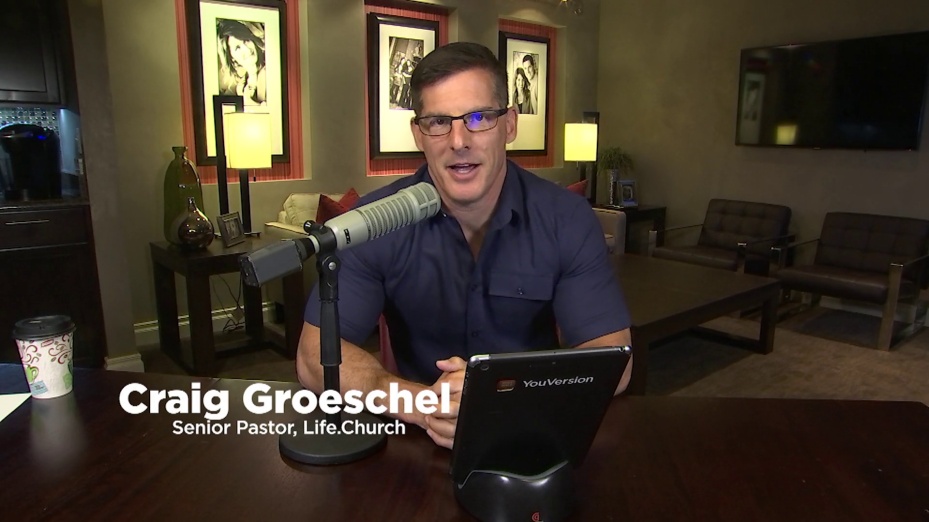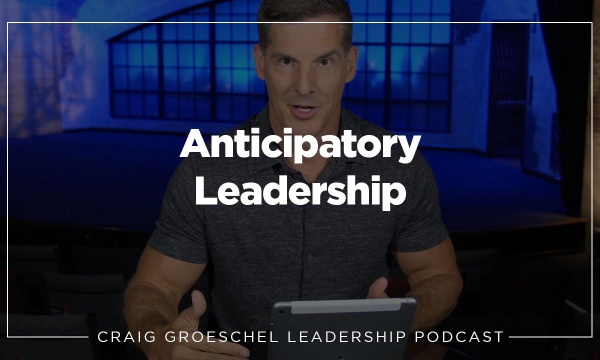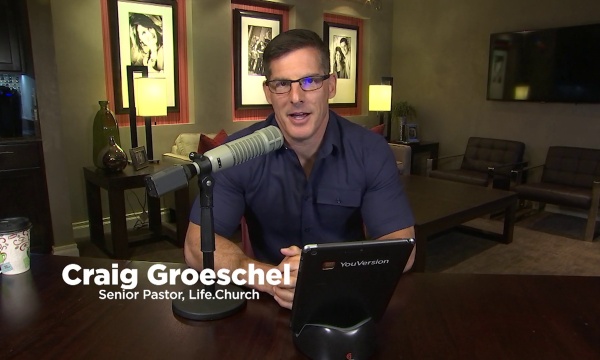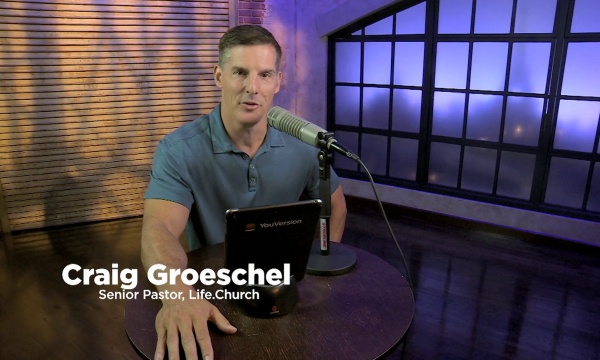Thank you for joining the Craig Groeschel Leadership Podcast! In Embracing Change, Part 1, Craig discussed the first of three ways to welcome change within yourself and your organization: change how you think about change. In Part 2, Craig discusses the last two points.
2. Discern what needs to change.
Some organizations have a problem but don’t know it. Many have a problem and they know it—but they don’t care. They are tolerating the problem.
To discern what needs to change, watch what’s happening and what’s not happening. Listen to what is being said and what’s not being said.
2. Be bold. Tweaks never change the world. Tweet this quote.
Changing the way you do something isn't bold. Taking a risk to do something new is bold. In order to be bold, you'll need to change the questions you ask yourself. You’ll want to apply this to your startup business, company, job, or family.
At
some point, your organization will hit peak growth. If left unchecked, it will
decline. Remember from
Embracing Change, Part
1
: the greatest threat to future success is current success.

At
its peak, a growing organization will be bold and make a big change before the
natural decline. That change moment will initially decrease momentum, but
unless the change happens, the organization will grow stagnant and decline. A
successful organization will be able to point to several of these big moments
in its history.
Remember, you don’t have to know it all to be a great leader! Be yourself. People would rather follow a leader who is always real than one who is always right.
DISCUSSION QUESTIONS
Here's an exercise you can do to grow as a leader—ask your team these questions:
- What’s changing around us? What do we need to learn from it?
- If someone replaced us, what’s the first thing they’d change?
- What have we been tolerating that needs to be changed?
LISTENER QUESTIONS
Have a question for Craig? Email him at leadership@life.church.
I’ve read about the importance of focusing your energy and time on a few things rather than on many. How do you do that when you are called to do many different things in your job?
Don’t just think “time management,” think “energy management.” All work hours are not created equal. Determine when you are most productive and what your most important responsibilities are. Identify what you do that has the highest impact, do it when you are at your best, and do it first in the week to ensure you create the most value.
We have core values for our organization, but not for our staff. Do you have any helpful resources for a team to develop core values for those on your team?
Core values are what you believe. They are what drive you and what you stand for. A team needs behavioral values. Name the most effective leaders in your organization. How do they behave? What do they have in common? Take those common behaviors and narrow them down 5-10 values. Teach those values, lead to them, interview for them—and don’t compromise.
EPISODE RESOURCES
- Leave a Review: www.go2.lc/leadershippodcastitunes
- Catalyst One Day: www.catalystconference.com/oneday
- Watch Life.Church messages: www.life.church/watch
- More from Craig: www.craiggroeschelbooks.com
- Free church resources & tools: www.life.church/churches
- Patrick Lencioni, The Advantage: Why Organizational Health Trumps Everything Else In Business
- Ask questions: leadership@life.church
- Facebook: www.facebook.com/craiggroeschel
- Twitter: @craiggroeschel
- Instagram: @craiggroeschel
- Snapchat: @craiggroeschel
CONNECT WITH CRAIG
- Ask questions: leadership@life.church
- Facebook: www.facebook.com/craiggroeschel
- Twitter: @craiggroeschel
- Instagram: @craiggroeschel
- Snapchat: @craiggroeschel
- Periscope: @craiggroeschel



